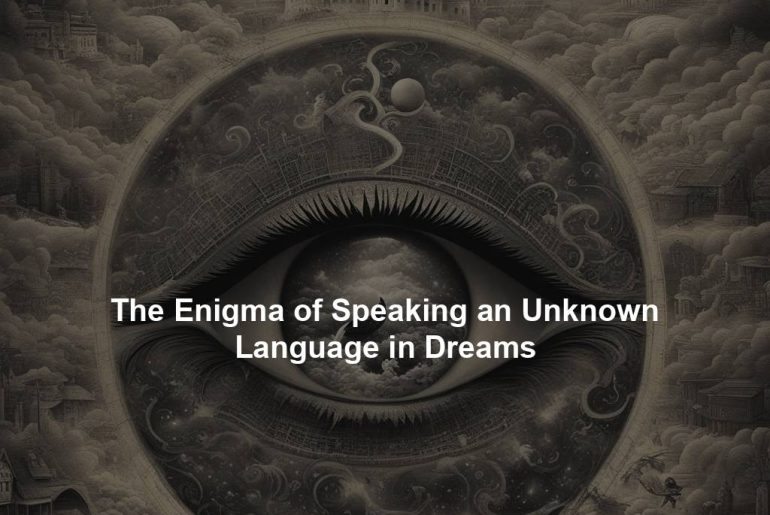We have all experienced the peculiar and often perplexing phenomena of dreaming. Dreams can transport us to surreal landscapes, thrust us into extraordinary situations, and introduce us to unfamiliar faces. Yet, one of the most confounding aspects of dreams is the ability to spontaneously speak and understand languages we have never encountered while awake. This enigma has puzzled philosophers, psychologists, and dream analysts for centuries, provoking questions about the nature of consciousness and the depths of our subconscious minds.
The Language Barrier
Everyone is familiar with the experience of dreaming in their native language or a language they know. In these dreams, the communication feels natural and effortless. However, what happens when we suddenly find ourselves fluently conversing in an entirely unfamiliar tongue? Do these linguistic skills spontaneously emerge from hidden recesses of our minds or is there another explanation?
One theory proposes that our dreams pull from random fragments of our memories and experiences. This random assembly of memories may produce a linguistic mishmash, resulting in what appears to be an unknown language. However, others contend that dreams may provide a glimpse into alternate realities or parallel dimensions where languages beyond our comprehension exist.
Unraveling the Mystery
Although the enigma of speaking an unknown language in dreams remains unsolved, researchers have made strides toward understanding this complex phenomenon. One prominent explanation suggests that the brain, during sleep, acts as a creative machine, distorting and manipulating linguistic knowledge we have acquired to form new languages within our dreams.
Scientists have found that the areas of the brain responsible for language processing, such as the Broca’s area and Wernicke’s area, are still active during sleep. However, these regions do not receive information from the outside world, leading to the emergence of nonsensical languages in our dreams. This may explain why we can speak these languages fluently in a dream state but struggle to understand or reproduce them in our waking lives.
Deeper Meanings and Symbolism
Some dream analysts and psychologists believe that speaking an unknown language in dreams carries symbolic significance. They argue that these linguistic mysteries are representations of our subconscious minds trying to convey profound meanings or unresolved psychological issues.
For instance, dream experts often interpret speaking an unfamiliar language as a reflection of our desire to communicate something important but being unable to find the right words in our waking lives. Alternatively, it could signify an encounter with the unknown or a hidden aspect of ourselves that is longing to be expressed.
The Ever-Evolving Dream World
Ultimately, the phenomenon of speaking an unknown language in dreams adds another layer of complexity to the multidimensional world of dreams. As scientific research continues to unlock the secrets of dream cognition and consciousness, we may one day unravel the mysteries behind these inexplicable linguistic occurrences.
Until then, the enigma of speaking an unknown language in dreams remains a remarkable phenomenon, challenging our understanding of the human mind and leaving us in awe of the mysterious depths of our subconscious.

